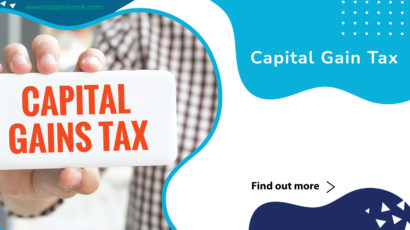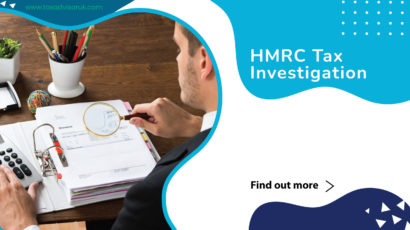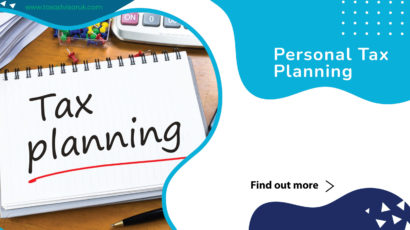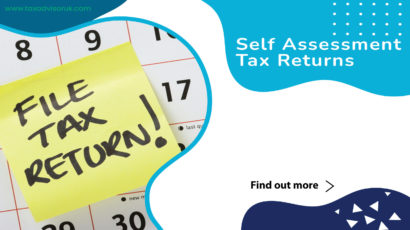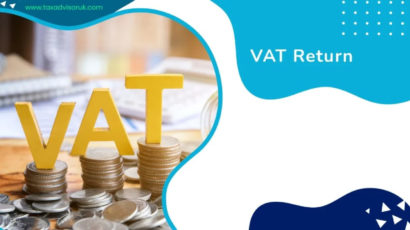When operating as a sole trader or partnership, taking money from the firm for personal use is usually simple and straightforward, and there are usually no tax repercussions unless the owners’ drawings constitute a significant drain on the business’ assets.
A company, on the other hand, is a separate legal entity, thus making withdrawals from one (even if you’re a director or shareholder) requires significantly more thought.
In this post, we’ll look at the implications of an overdrawn director’s loan account, as well as ways to mitigate or avoid them.
What is an overdrawn Director’s Loan Account?
If a director receives a payment that is not part of their standard remuneration package (generally salary and dividends), the payment is normally applied to their director’s loan account. The only other option is to classify the money as a bonus, but bonuses can be expensive in terms of tax and National Insurance.
If the director has a balance available on their director’s loan account, they can merrily draw down on their loan account with no tax implications or reporting requirements. It’s like they’ve got a bank account they can just dip into, provided the account remains in credit..
When the available funds are depleted, however, the director is in default and becomes a business debtor. This has two ramifications:
Corporation tax charge – S455
To begin with, if a balance on their loan account remains unpaid at the end of the fiscal year, the company may be subject to a tax charge known as S455. However, this only applies to ‘close firms,’ which are those with fewer than five shareholders/directors.
The loan account balance must be reported on additional pages of the corporation tax return (CT600), and the S455 charge is computed as 32.5 percent of the outstanding balance on the director’s loan account at the end of the period. The S455 tax is due nine months and one day after the end of the accounting period in question.
Because an overdrawn director’s loan account is practically an interest-free loan, S455 is intended to prevent the firm from giving its directors such lucrative incentives. S455 is unique in that it is a temporary loan that is reimbursed to the company by HM Revenue & Customs (HMRC) as the director repays the loan to the company.
Furthermore, you just have to pay S455 on any loan advances, not the entire loan total. So, if your loan total increased from £15,000 to £18,000 this year, you’d only pay S455 on the extra £3,000 this year, not the entire £18,000.
Relief is due immediately if the loan is repaid within nine months of the end of the accounting period, i.e. the S455 is never physically paid (but declaration in the company’s tax return is still necessary).
Beneficial Loan benefit in kind
An overdrawn director’s loan account might also result in a benefit in kind for the so-called “beneficial loan.” An overdrawn director’s loan account, as previously stated, is practically an interest-free loan. As a result, the director is subject to taxation on the interest that would have been due if the loan had been made on the open market (the calculation of which is stipulated by HMRC).
When a taxable benefit for a beneficial loan does not arise, there are a few exceptions:
- Interest was charged to the director by the corporation (there are criteria surrounding this)
- The loan is considered small,’ meaning it is less than £10,000 for the entire tax year.
Watch out for benefits in kind
P11Ds are the returns for Benefits in Kind. By July 6th, you must provide HMRC with copies plus the P11D(b) (which reveals the company’s Class 1A National Insurance liability). The P11Ds will detail what happened to the overdrawn director’s loan account over the course of the tax year (not the fiscal year).
If you have an overdrawn director’s loan account, you will need to draw up your books mid-year to complete your P11Ds if your company’s year end is not 31st March (i.e. the tax year).
It is critical to complete the P11Ds and P11D(b) on time if your director’s loan account is overdrawn and you believe it will exceed £10,000 at any stage during the tax year. If your P11D(b) is late, you will be fined £100 per 50 employees for each month or part month the return is late. If you pay HMRC late, you’ll face fines and interest.
The interaction between S455 and the benefits code
S455’s interaction with the benefits code can result in some unexpected outcomes:
A S455 charge can be reduced if a dividend is declared after the year ends. However, if the loan sum was over £10,000 at any moment, a benefit in kind would be available.
A loan remains under £10,000 for the whole of the year but is not repaid by the end of the year or within the next nine months. There would be an S455 price to pay, but there would be no benefit in kind.
As you can see, an overdraft on a director’s loan account might result in either an S455 charge or a benefit – or both.
Record keeping and disclosure
It’s critical to keep good records when it comes to a director’s loan account. Poor recordkeeping may result in misallocation of expenses/payments, resulting in the failure to pay the correct taxes, and a notation is necessary in accounts where a loan account is overdrawn.
Overall, the idea is to keep timely, accurate records and to keep transactions involving each of the directors and their loans separate
How to deal with an overdrawn director’s loan account
It’s difficult to provide a single answer that will fit everyone’s needs, as it is with many instances. However, if the overdraft lasts for a long time, the corporation may decide to declare the dividends (profits permitting). Although personal tax will almost definitely be due on the dividends, it should only be a one-time hit, but the consequences of an overdrawn director’s loan account can last for years. Dividends are also exempt from National Insurance, making them a more cost-effective option.
How TaxAdvisor UK can help
At TaxAdvisor UK , our experts will provide you 30 minutes free consultation and help you in managing all your tax and accounting work. Speak to our expert accountants, tax advisor on (0203) 5381276 or fill an online form today. We can have a consultation session over the phone, virtual or face to face meeting and will provide you with a no obligation fixed quote




